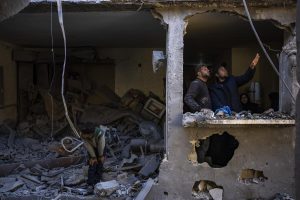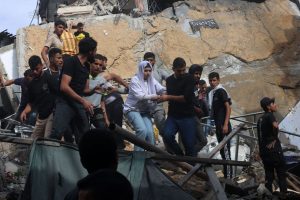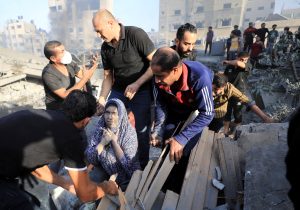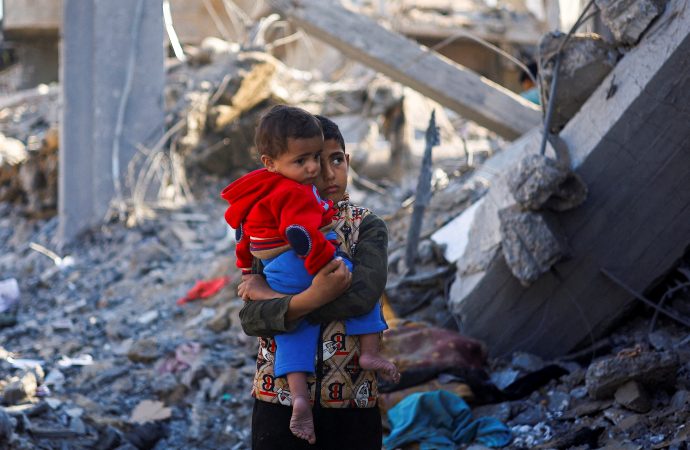Introduction Amidst escalating tensions in the Middle East, the United States and the United Nations have issued a joint plea, urging Israel to exercise restraint and refrain from launching an attack on Rafah in southern Gaza. In this article, we delve into the geopolitical intricacies, regional concerns, and the Restraint Rafah in south Gaza global
Introduction
Amidst escalating tensions in the Middle East, the United States and the United Nations have issued a joint plea, urging Israel to exercise restraint and refrain from launching an attack on Rafah in southern Gaza. In this article, we delve into the geopolitical intricacies, regional concerns, and the Restraint Rafah in south Gaza global appeal for de-escalation in this critical situation.
The Unfolding Crisis: A Snapshot

This image is taken from google.com
1. Escalating Tensions
Tensions in the Middle East have reached a critical juncture, with concerns mounting over the possibility of military action in the southern Gaza city of Rafah. The situation has prompted international leaders to intervene and appeal for a peaceful resolution.
2. Strategic Significance
Rafah holds strategic significance, situated near the border with Egypt. An escalation of hostilities in this region could have far-reaching implications for regional stability, prompting international actors to address the situation urgently.
The Joint Plea: US and UN Unite

This image is taken from google.com
1. Diplomatic Channels Activated
The United States, in coordination with the United Nations, has activated diplomatic channels to urge Israel to exercise restraint and avoid any military action in Rafah. The joint plea emphasizes the importance of dialogue and diplomatic solutions to resolve the underlying issues.
2. Regional Stability at Stake
Both the US and UN underscore the potential repercussions of an attack on Rafah, highlighting the broader impact on regional stability and the ongoing efforts for peace in the Middle East.
Dr. Sarah Ahmed’s Analysis
To provide expert analysis on the unfolding situation, we reached out to Dr. Sarah Ahmed, an accomplished International Relations expert. Dr. Ahmed states:
“The joint plea from the US and UN reflects the gravity of the situation in Rafah. The call for restraint underscores the recognition that a peaceful resolution is essential not only for the immediate region but for global stability as well.”
Global Call for De-Escalation

This image is taken from google.com
1. International Community Weighs In
The crisis in Rafah has prompted a broader global call for de-escalation. World leaders and international organizations stress the need for all parties involved to prioritize dialogue and peaceful negotiations over military action.
2. Humanitarian Concerns
The international community expresses deep concern for the potential humanitarian impact of military operations in Rafah, urging all parties to consider the well-being of civilians and avoid actions that could exacerbate the already fragile situation.
Visualizing the Urgency
Comparative Table: Recent International Pleas for Peace
| Country/Entity | Key Points of Plea | Urgency Level |
|---|---|---|
| United States | Restraint in military action, prioritizing diplomacy | High |
| United Nations | Urgent call for peaceful resolution in Rafah | High |
| European Union | Emphasis on regional stability and dialogue | Medium |
Looking Ahead: Paths to Peace
As the international community unites in urging Israel to avoid an attack on Rafah, the world watches closely, hopeful for a peaceful resolution to this critical situation. The path to peace in the Middle East remains uncertain, underscoring the importance of diplomatic efforts and international cooperation in navigating the complexities of regional conflicts.
















